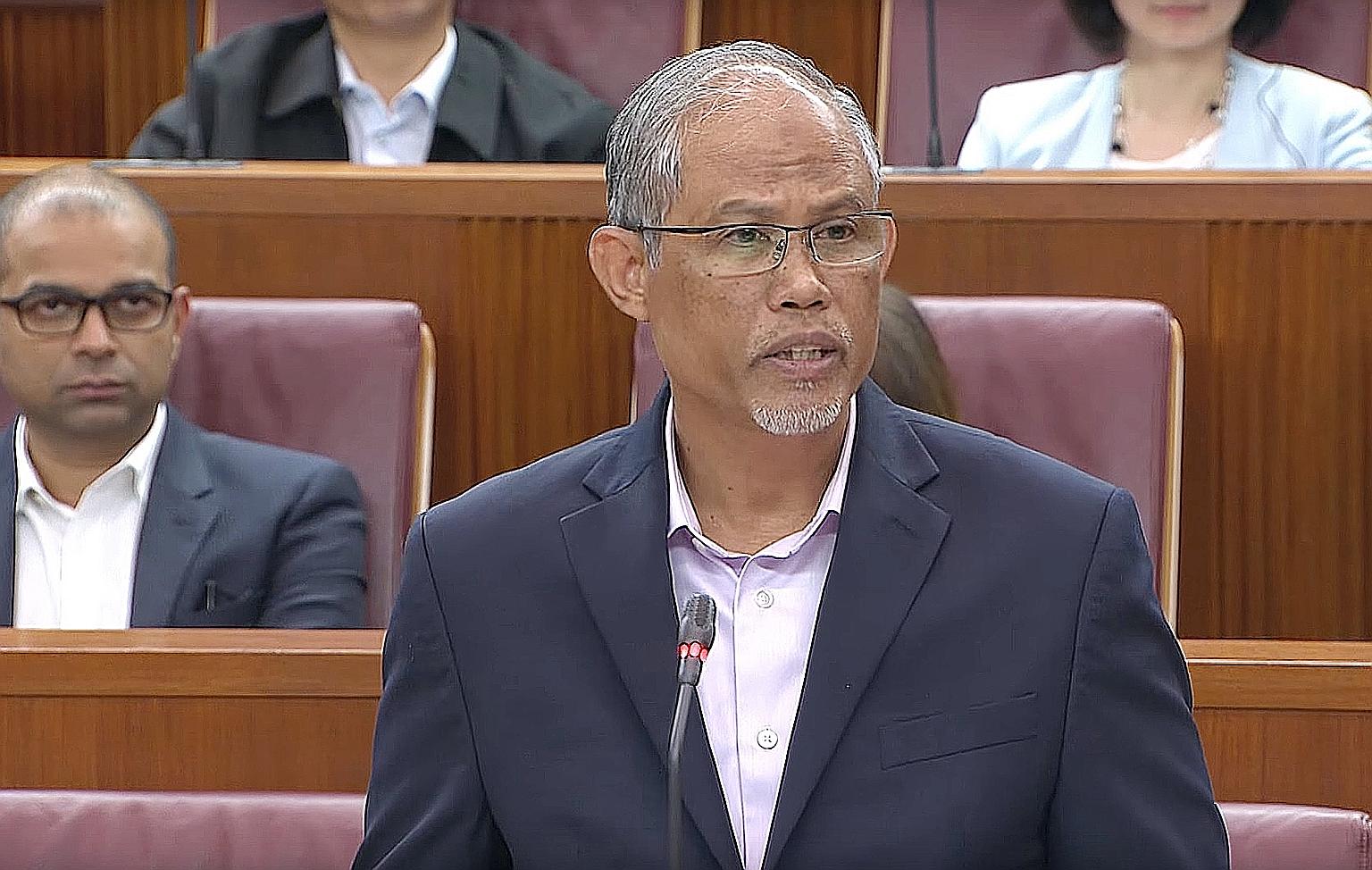Develop a Singapore brand of meritocracy: Masagos
Giving back to society, maintaining common spaces for all and govt support are key, he says
Sign up now: Get ST's newsletters delivered to your inbox

Minister for Environment and Water Resources Masagos Zulkifli said Singapore's brand of meritocracy has to strike a balance between ensuring economic policies are not driven by fierce pursuit of economic gains, and social policies are not designed with "bleeding hearts".
PHOTO: GOV.SG/YOUTUBE
Singapore needs to develop its own brand of meritocracy to ensure nobody is left behind, said Minister for Environment and Water Resources Masagos Zulkifli.
This brand of meritocracy has to strike a balance between ensuring economic policies are not driven by fierce pursuit of economic gains, and social policies are not designed with "bleeding hearts", he added.
Speaking on the first day of the debate on the President's Address, Mr Masagos warned against the consequences of rising social inequality.
Meritocracy is not a perfect system and does not always work properly, he noted, for instance when those who start with more end up monopolising success.
Over time, this will polarise society into the "haves" and "have-nots", and cause the marginalised to lose trust in institutions and society - an outcome which has led to the United States retreating from free trade in a bid to revive the American Dream, he said.
"Slowly and quietly, society will break up from within. When that happens, we will not be able to come together to face challenges that call for national unity."
Mr Masagos listed three "ingredients" to a Singapore brand of meritocracy: The successful giving back to society, maintaining common spaces and experiences for all Singaporeans, and government support.
He stressed the importance of those who had achieved success giving back to those in need, instead of hoarding the gains for themselves.
This was the thinking behind Singapore's public service model, said Mr Masagos, who is also Minister-in-charge of Muslim Affairs.
The most capable people were awarded scholarships to study at the best universities in the world and then returned to dedicate their best years to public service, he said, adding that "everyone in society benefits" as a result.
He also questioned if the children of Singapore's new rich would still give time to uplift the rest of society, as previous generations did.
"What is clear though is that only when they give back, will society accept, rather than envy, their success," he said in a speech that had MPs thumping their seats.
On the Government's part, he said its policies have to act as enablers - "ladders and bridges" to provide a fair chance for everyone to move up in society, not reward narrowly and make alternative routes available.
"As DPM Tharman once put it - 'multiple peaks of excellence'. And if I may add, 'many chances of success,' " Mr Masagos added.
Government policies must also enable self-reliance by encouraging work, and provide opportunities to do well, he said. To prepare the workforce, the Government invested in SkillsFuture and the industry transformation maps to enable workers to seize opportunities in the future economy.
Speaking about common spaces, Mr Masagos recounted how, on his travels to other cities, he saw neighbourhoods and schools meant for the wealthy, successful and connected, while there were also neighbourhoods visitors were advised to avoid - typically where the low-income or new immigrants gather.
"That is a failure of meritocracy that we have avoided and must never allow to take shape in our future," he said.
This is why the Government must distribute rental housing across the island and mix public and private housing more deliberately to ensure that the needy are not deprived of access to good quality public facilities, he added.
"Every Singaporean must play our role. Resist the 'not in my backyard' tendency to shove critical but undesirable facilities like funeral parlours behind rental blocks," he said.
In schools, education policies must enable every Singaporean to pursue their aspirations and realise their potential regardless of family background, he added.
Even as the Government formulated these policies, Mr Masagos emphasised how meritocracy can be moral only if "those who take the most from the system also put the most back into it".
In closing, he said: "The Singapore brand of meritocracy must remain the means to build a good society, not just one to build a richer society... A Singapore where nobody is left behind, and a Singapore which continues to provide opportunities for everyone to realise his dreams."


